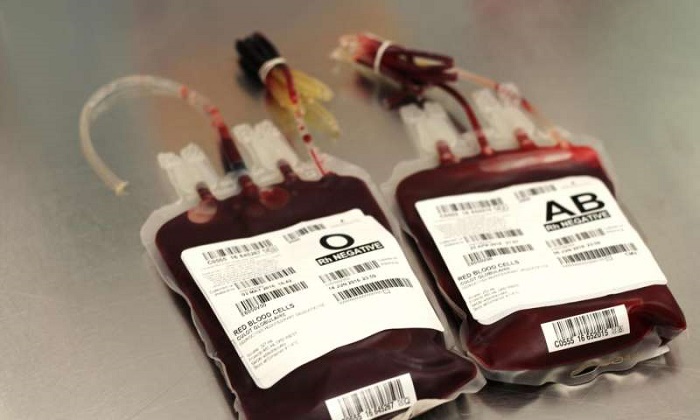The new findings show a link between the characteristics of a blood donor, and recipients` outcomes, experts say.
Dr Dean Fergusson, a senior scientists at The Ottawa Hospital, and professor at the University of Ottawa, said: `These results are intriguing and suggest that if you require a transfusion, your clinical outcome may be affected by the blood donor`s age and sex.
`However, it is important to remember that our study was observational in nature, which means it cannot be considered definitive evidence.`
The study, published in JAMA Internal Medicine, evaluated the impact of blood donor sex and age, on recipient outcomes by linking 30,503 transfusion recipients at The Ottawa Hospital between October 2006 and December 2013, with their respective blood donors - 80,755 donors in total.
The average age of the recipients was 66.2 years and their outcomes were followed for an average of 2.3 years, with a maximum follow-up time of 7.2 years.
The researchers found that recipients of female donor red blood cells were associated with an eight per cent increased risk of death (from any cause) per unit transfused compared with recipients of male donor red blood cells.
For example, for a recipient that received six units of red blood cells, this would translate into an associated risk of death of 36 per cent for recipients of all-female donor blood compared to 27 per cent for recipients of all-male donor blood one year later.
The researchers also found similar associations with red blood cells from younger donors.
Recipients of blood from donors aged 17- 20 were associated with an eight per cent increased risk of death per unit transfused compared with recipients of red blood cells from donors aged 40-50.
In addition, recipients of red blood cells from donors aged 20-30 were associated with a six per cent increased risk of death per transfused product compared with recipients of red blood cells from donors aged 40-50.
Dr Michaël Chassé, an assistant professor at Université Laval and a critical care physician at CHU de Québec-Université Laval, said: `We need further research to confirm these findings and to look at possible biological mechanisms.
`One possibility is that components in the blood of younger donors or female donors may affect the immune system of the transfusion recipient.`
`Though our research suggests that we should investigate what`s behind the associations that we found, there is no definitive evidence yet that proves that one type of blood is better or worse for patients,` said Dr Jason Acker, co-author on the paper and Senior Development Scientist with Canadian Blood Services.
`This study opens up new areas of investigation where we can really dig into the biological explanations and understand true cause and effect.
`In the meantime, patients continue to receive the safest transfusions possible.`
Importantly, all of the patients in this study needed and received potentially life-saving transfusions.
All eligible donors are encouraged to continue to donate.
More about:
















































